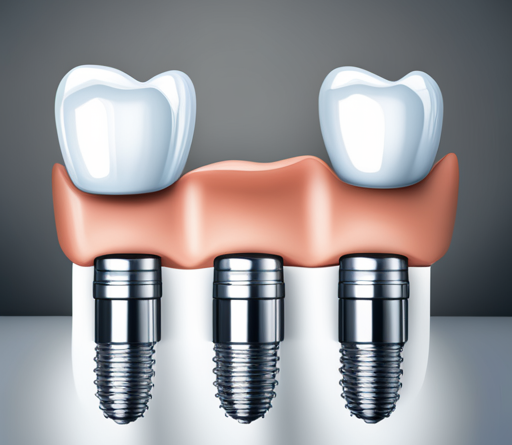Dental Implant Cost Breakdown: The Price of Perfection
For those considering dental implants, the promise of a permanent, natural-looking solution to missing teeth is undeniably appealing. But what is the real cost of pursuing this precise and seemingly perfect dental procedure? Understanding the breakdown of dental implant cost is crucial for informed decision-making and financial planning. In this comprehensive guide, we’ll explore the various expenses associated with dental implants, unpacking industry averages, variable costs, and what to expect when investing in your smile.
The Anatomy of a Dental Implant
Before we talk numbers, it’s essential to understand what comprises a dental implant. A dental implant is composed of several parts, each with its role in the restorative process:
- Implant Fixture: This is the “root” of the new tooth, usually made of titanium and surgically placed into the jawbone.
- Abutment: This connector piece, often made of metal or ceramic, attaches to the implant to support the crown.
- Final Restoration: The custom-made crown, bridge, or denture that sits atop the abutment, mimicking the form and function of a natural tooth.
What Influences Dental Implant Cost?
Several factors play into the cost of dental implants, and it’s important to note that each patient’s treatment plan is as unique as their smile. Some of the key influencers of implant cost include:
- Number of Teeth: The more teeth you need to replace, the higher the overall cost.
- Type of Implant: Variables such as materials used, brand reputation, and the complexity of the dental implant system can impact the final price.
- Prestige of the Provider: Dentists with advanced training and those skilled in complex implantology may charge premium fees.
- Geographic Location: The cost of living and demand for dental services in a particular area can significantly affect pricing.
- Preparatory Procedures: Some patients may require additional treatments, such as bone grafting or sinus lifts, which can add to the total bill.
- Sedation and Anesthesia: Comfort measures during surgery can increase costs but are often recommended for complex cases or anxious patients.
- Aftercare and Maintenance: Regular check-ups, cleanings, and potential repairs are part of the long-term costs associated with implant care.
Understanding the Price Tags
The overall cost of dental implants can seem daunting at first glance, with prices ranging anywhere between $1,500 to $6,000 per tooth for the implant and an additional $500 to $3,000 for the abutment and crown. Here’s a deeper look at what those numbers signify.
Initial Evaluation and Planning
The first stage in your implant process will likely involve evaluations, including X-rays, CT scans, and a full dental exam. This phase could cost between $100 to $1,000, depending on the extent of imaging and consultations needed.
Surgeon’s Fees
The surgical placement of the implant fixture is one of the most significant costs, ranging from $1,000 to $3,000 per implant. For complex cases, such as patients requiring multiple implants or those with challenging anatomies, fees at the upper end of the spectrum are not uncommon.
Abutment and Crown
Following the healing period, where the implant fuses with the bone, the abutment and crown are attached. These elements can cost between $500 and $3,000 each, which is again contingent on factors such as material type and the need for customization.
Anesthesia and Sedation
Pain management during surgery can involve local anesthesia, sedation, or even general anesthesia in hospital settings. This can add a few hundred dollars to several thousand to the overall bill.
Additional Treatments
Pre-implant treatments, like bone grafts or tooth extractions, are sometimes necessary to ensure the success of the implant. These procedures can bump up the price tag anywhere from $250 to $3,000 or more, depending on the complexity.
Making Dental Implant Costs Manageable
Given the investment required for dental implants, it’s no surprise that they may be out of reach for many in need of restorative dental work. However, there are options to make the cost more manageable:
Dental Insurance and Financing
While not always covered, some dental insurance policies include a partial reimbursement for implant procedures. Additionally, many dentists offer in-house financing or accept payment plans through third-party providers to spread out the cost over time.
Patient Assistance Programs
Certain programs and foundations exist to assist individuals with significant dental needs, especially when it involves restoring a person’s ability to eat, speak, and lead a fulfilling life. These programs can sometimes cover a portion or the entirety of the implant costs.
Consider Overseas Options
Costs for dental care, including implants, vary widely around the globe. For individuals with the flexibility to travel, exploring reputable dental facilities in other countries, renowned for their quality of care and lower costs, can present a cost-effective solution.
Understand the Lifelong Value
While the upfront cost of dental implants can be considerable, the investment is just that—a long-term investment in your oral health and quality of life. Unlike traditional bridges or dentures, dental implants are designed to last a lifetime with proper care, making them a durable, functionally superior, and esthetically pleasing solution to tooth loss. It’s crucial to weigh the initial expenses against the long-term benefits and savings on potential future dental work.
Ensuring You’re In Good Hands
When contemplating dental implants, selecting a skilled and reputable dental professional is paramount. Look for dentists with extensive experience in implant dentistry, a solid track record, and the ability to provide you with transparent pricing and treatment options. Understand that a top-tier professional may charge more, but their expertise can minimize risks associated with the procedure and potentially save costs in the long run.
The Verdict on Dental Implant Costs
The decision to pursue dental implants is a personal one, influenced by clinical need, personal preference, and financial considerations. By understanding the cost breakdown and exploring the various factors at play, you can approach the prospect of implant surgery with both eyes wide open. Remember that the cost of dental implants is an investment in yourself—and one that promises a priceless return in terms of confidence and quality of life.
For those still unsure about the road ahead, consulting with a dental implant specialist is a crucial next step. Whether through a dentist you trust or by seeking a second opinion, the more information and guidance you have, the more empowered you’ll be to make the right choice for your dental health. Implants might seem like a perfect solution, but it’s important to weigh the price against the benefits, and only you know the true value of a healthy, beautiful, and functional smile.



